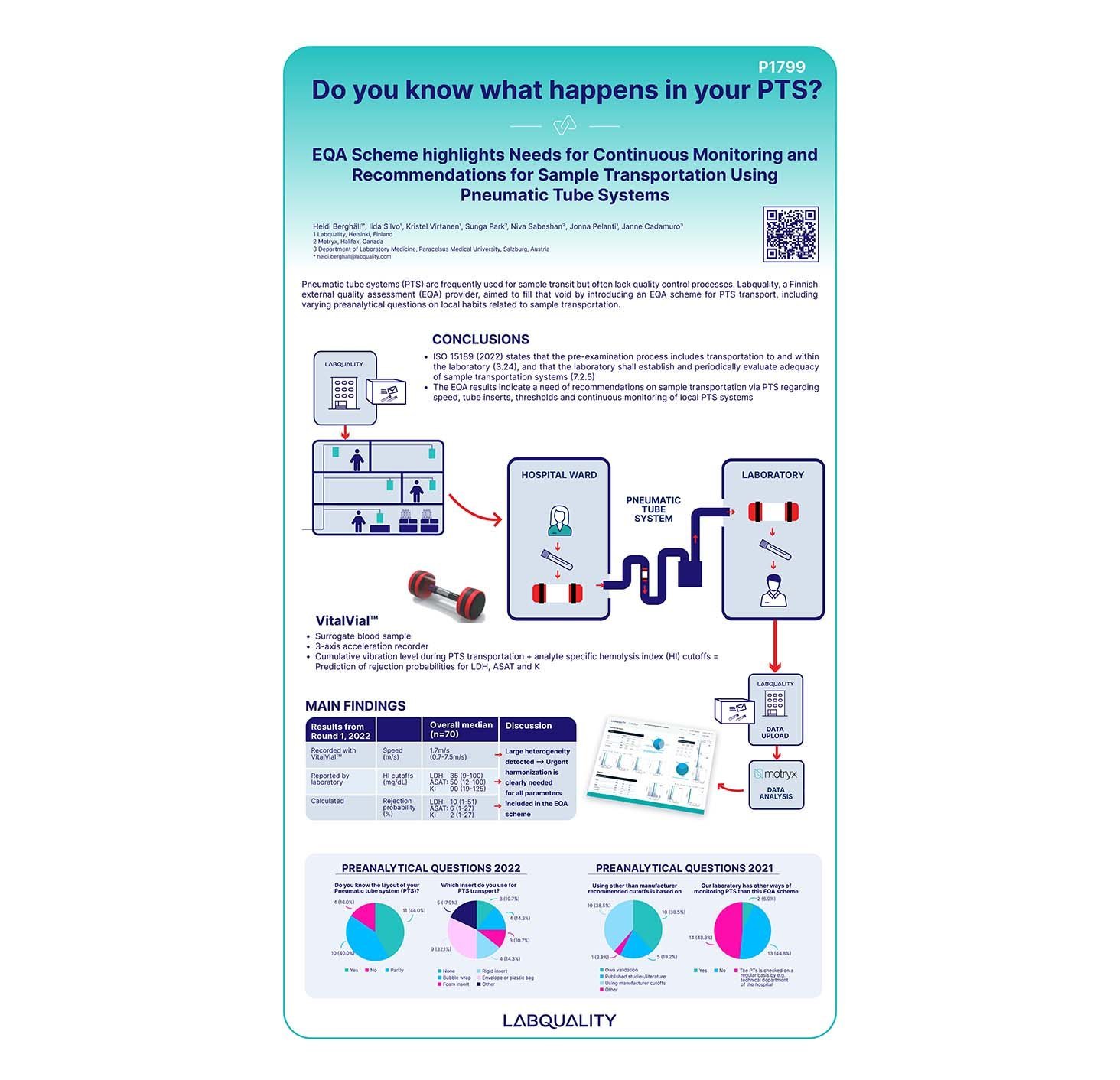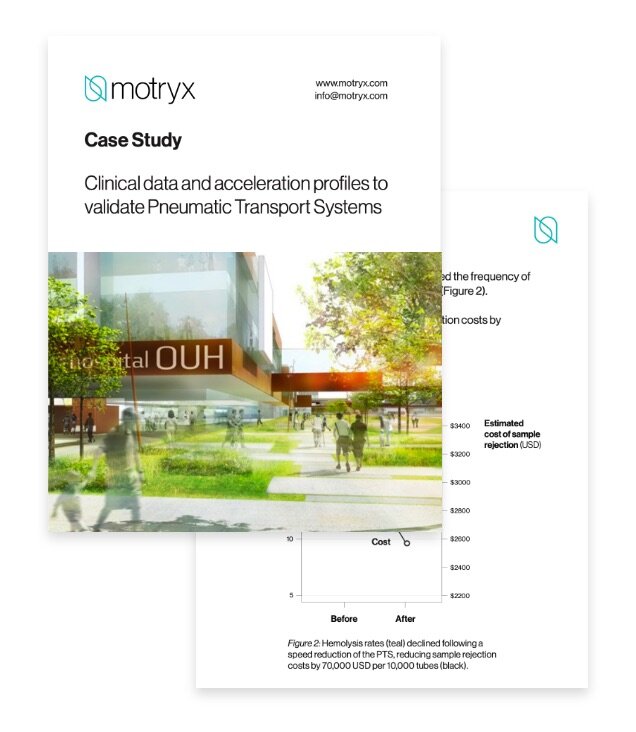
EQA Scheme with Labquality
Pneumatic Tube System Validation
Blood-based vs VitalQC
Motryx’s VitalQC uses a surrogate sample (VitalVial) representing over 1700 clinical samples paired with vibration data and have been added to the VitalQC data base. VitalVial measurements are directly translated into clinically relevant parameters. Quantifying the hemolysis caused by the PTS transport helps laboratories gain insight into other sources of hemolysis in the hospital.
Case Study: Streamlining Clinical Validation with VitalQC
Bispebjerg Hospital Copenhagen, Denmark
By completing clinical validation on lines with the highest measured risk, the laboratory at Bispebjerg Hospital was able to reduce its need for donor samples by 50% during the validation process.
Case Study: Reducing speed, acceleration and hemolysis.
Odense University Hospital, Denmark
Odense University Hospital is one of the largest research hospitals in Denmark, processing 6000 tubes per day. They used VitalQC to measure forces alongside clinical data, and were able to reduce rejection rates and costs by 70,000 USD per 10,000 tubes.
Whitepaper: Validating Pneumatic Tube Systems with VitalQC
Transport systems are like any other laboratory instrument: they must be validated to demonstrate they are safe for diagnostic use.
Whitepaper: Integrity monitoring in blood-specimen transport
The scope, cost, and solution to transport-induced hemolysis.
Publication: Clinical data and acceleration profiles to validate Pneumatic Transport Systems.
Charlotte Gils, Franziska Broell, Pernille J. Vinholt, Christian Nielsen and Mads Nybo. Clinical data and acceleration profiles to validate Pneumatic Transport Systems. Clinical Chemistry and Laboratory Medicine, 2019







